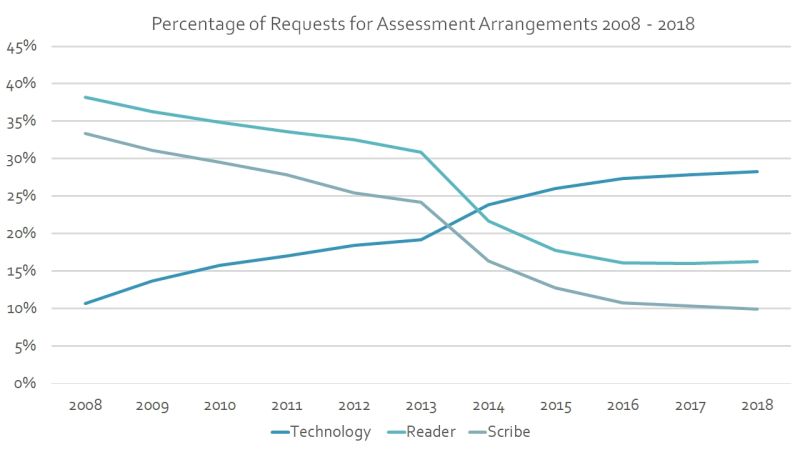 Newsletter: join thousands of other people
Newsletter: join thousands of other people
Once a month we'll send you an email with news, research and thoughts, as well as training courses and free webinars you may wish to attend.
Our websites:
Posted by Paul Nisbet on the 20th May, 2025

CALL Scotland has received an enhanced grant for 2025-2026 and so we will be recruiting new colleagues to the CALL team over the next few months. The first post is for an experienced teacher with expertise in additional support for learning and assistive technology for pupils in secondary education. A particular remit for this job is the work with the Scottish Qualifications Authority to continue CALL's long-term collaboration around digital assessment arrangements, when Paul Nisbet leaves CALL at the end of July. If this sounds like you, read on.
Job description, details and applications: Assistive Technology and Additional Support Needs (secondary) teacher
This post is full-time (35 hours per week); however, we are open to considering part-time or flexible working patterns. We are looking to appoint on an open-ended contract, but a fixed term secondment would also be considered. The post requires travel around Scotland. Working from home is possible on occasion but you will need to work with the CALL team in Edinburgh and campus working will be involved.


This post is partly to replace some of Craig Mill's skills regarding assistive technology for pupils with dyslexia or literacy challenges or visual impairment, which are Craig's particular areas of expertise. Craig is also an expert on creating accessible documents and multi-media, so it would be helpful if you are too!
If you'd like to find out more about this aspect of the post, contact Craig Mill.
In CALL we have the privilege of working directly with pupils who may benefit from assistive technology and we also have the opportunity of working and influencing at a Scottish national level. Our work on digital assessment arrangements is a good example of the latter: in 2004 we recognised that Extra Time and Readers were the most common assessment arrangement requested for pupils in Scottish examinations, and hypothesised that students could perhaps be more independent if they could use a computer reader to read a digital question paper.
We researched options and developed and trialled interactive question papers in PDF in 2006 and 2007. Outcomes and feedback from staff and learners were positive and so SQA first offered the digital question papers as an assessment arrangement in 2008. Several of the exam boards in the rest of the UK followed our lead in 2014. Digital assessment arrangements plus digital papers are now the most commonly requested assessment arrangement in Scotland (excluding extra time and separate accommodation). In England, Wales and Northern Ireland, digital question papers are the most common type of modified question papers.


Technology of course changes, which is one reason why our job here in CALL is so interesting and exciting. In 2008, iPads and Chromebooks didn't exist; in 2025, every pupil in some local authorities have their own personal iPad or Chromebook. However, there are challenges with organising digital assessment arrangements on these devices, and so we have continued to work with SQA, teachers, technical teams and suppliers of tools such as exam.net, OrbitNote and DocsPlus to find solutions that work for everyone, regardless of the devices that are used in school.
20% (1 day/week) of this post will be to lead our work on digital assessment arrangements and hopefully to continue this innovative and important contribution.
If you have any questions or would like to discuss this post, please email Paul.Nisbet@ed.ac.uk.
Once a month we'll send you an email with news, research and thoughts, as well as training courses and free webinars you may wish to attend.
Our social media sites - YouTube, Twitter and Facebook